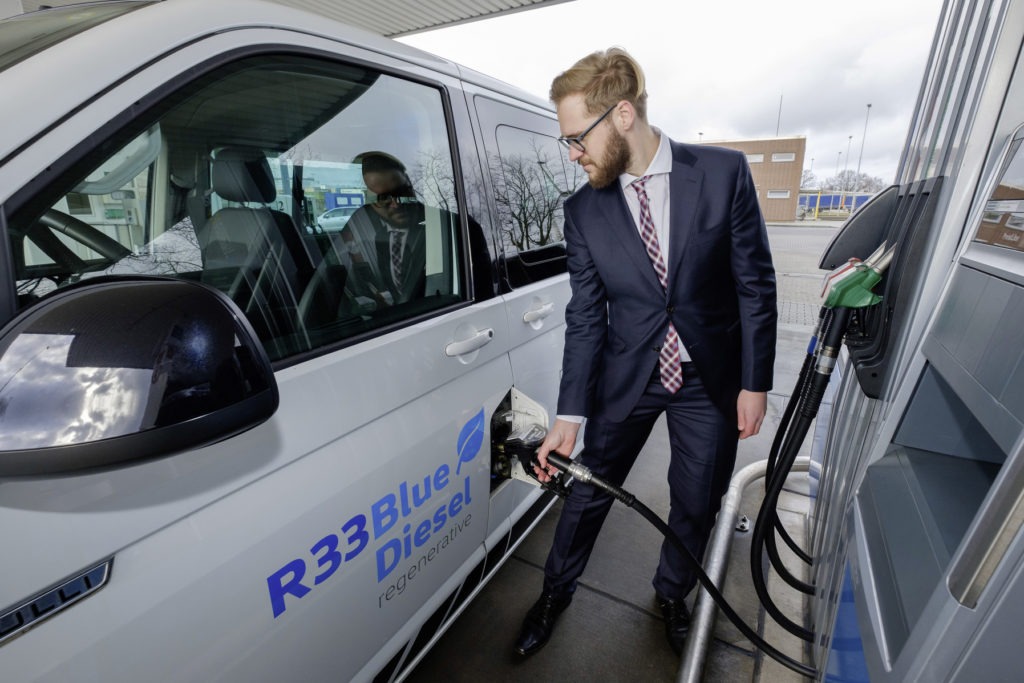VW develops cleaner diesel for fleet use
04 December 2018

4 December 2018
Volkswagen has completed the testing phase of its newly developed R33 BlueDiesel fuel at its in-house filing station in Wolfsburg.
The company has been testing its innovative fuel since January this year. It believes the fuel can offer CO2 savings of over 20% compared to conventional diesel, thanks to the use of biofuels. It also enables fleet customers to achieve climate protection goals.
VW employees tested the new fuel initially. Over a period of nine months, they filled up company vehicles with R33 BlueDiesel and ran them as usual. In order to achieve its results, up to one-third of the new fuel consists of renewable fuel components.
Volkswagen, the Coburg University and other project partners, jointly developed the R33 concept. The current supplier since January 2018 is Shell Global Solutions in cooperation with Tecosol and Neste, who supply fuels certified according to European standards. R33 BlueDiesel complies with the diesel standard DIN EN 590 and fulfils all criteria for use as a standard fuel without having to meet further requirements. The fuel is of particular interest to Volkswagen’s major and fleet customers whose diesel vehicles cover many kilometres a year as its use helps to achieve climate protection goals.
The fuel uses cooking oil, commonly found in deep fat fryers, which modern technology can help to utilise. The fat is filtered, cleaned and processed into a paraffin mixture or biodiesel, which is then added to the basic diesel. R33 BlueDiesel, for example, has a bio content of up to 33% based exclusively on residual and waste materials. At least 20% CO2 can, therefore, be saved compared to conventional diesel fuel. The fuel can also be used in diesel vehicles without the engine needing to be converted, as it fully complies with the diesel fuel standard.
Following the successful test phase, R33 BlueDiesel is now being used permanently at Volkswagen’s filling stations in Wolfsburg, and a test operation has also been started at the Volkswagen plant in Salzgitter. Introduction at further locations is planned.
Project manager Thomas Garbe from Volkswagen’s Development department comments: ′The response to R33 BlueDiesel is very encouraging for Volkswagen and its project partners. R33 BlueDiesel is particularly suitable for companies that rely on diesel vehicles due to their long fuel ranges and still want to achieve their environmental goals. We are preparing for a significant increase in demand for liquid fuels from residual materials and for advanced biofuels in the medium term. I hope that public filling stations will also be offering R33 as ′Green Premium’ in the near future.’